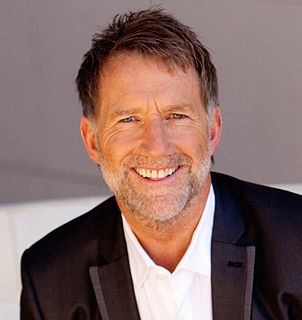A Quote by Dave Barry
Software: These programs give instruction to the CPU, which processes billions of tiny facts called bytes, and within a fraction of a second it sends you an error message that requires you to call the customer-support hot line and be placed on hold for approximately the life-span of a caribou.
Related Quotes
Nobody is delineated, nobody is concentrated. There is a lot of extraneous stuff. Like for instance, the satellites that measure in the atmosphere, there is billions and billions and billions of bytes of data, only maybe 2% of which are actually useful. They don't know what the rest are for, they don't know what good they are.
I have a way to photograph. You work with space, you have a camera, you have a frame, and then a fraction of a second. It's very instinctive. What you do is a fraction of a second, it's there and it's not there. But in this fraction of a second comes your past, comes your future, comes your relation with people, comes your ideology, comes your hate, comes your love - all together in this fraction of a second, it materializes there.
The software programs that make our body run ... were evolved in very different times. We'd like to actually change those programs. One little software program, called the fat insulin receptor gene, basically says, 'Hold onto every calorie, because the next hunting season may not work out so well.' That was in the interests of the species tens of thousands of years ago. We'd like to turn that program off.
...One of the most important lessons, perhaps, is the fact that SOFTWARE IS HARD. From now on I shall have significantly greater respect for every successful software tool that I encounter. During the past decade I was surprised to learn that the writing of programs for TeX and Metafont proved to be much more difficult than all the other things I had done (like proving theorems or writing books). The creation of good software demand a significiantly higher standard of accuracy than those other things do, and it requires a longer attention span than other intellectual tasks.
It is said if an organization listens to the complaint of a customer and the problem is fixed, the customer remains a loyal customer and tells approximately seven others about the experience. Conversely, if a person is ignored and the problem not fixed, that customer will not deal with that organization anymore and will tell approximately twenty other people about the negative experience.
The outside-in discipline requires that you have an explicit customer-based reason for everything you do in the marketplace. Managers need to create what I call "customer pictures," verbal descriptions of customers that highlight the key customer characteristics and make those customers come alive. Although managers never know as much about customers as they want and need to know, the outside-in discipline requires that they construct customer pictures anyway, basing the pictures on whatever hard data they have plus hypotheses and intuition.
That is, you can have nothingness, absolute nothingness for maybe a tiny fraction of a second, if a second can be defined in that arena, but then it falls apart into a something and an anti-something. And that something is then what we call the universe. But can we really understand that or put rigorous mathematics or testable experiments against that? Not yet. So one of the big holy grail of physics is to understand why there is something rather than nothing.
Conclusions which are merely verbal cannot bear fruit, only those do which are based on demonstrated fact. For affirmation and talk are deceptive and treacherous. Wherefore one must hold fast to facts in generalizations also, and occupy oneself with facts persistently, if one is to acquire that ready and infallible habit which we call "the art of medicine".
































